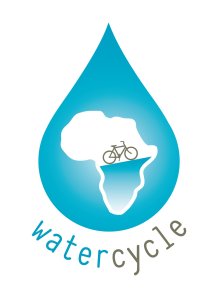By Ron Guillet
Does traveling across the barren, potentially dangerous African landscape on a bicycle with no bottled water sound exciting to you?
To Water Cycle, a non-profit organization, it is a worthwhile adventure to spread awareness about the water issues surrounding the dry continent of Africa.
Jason Galbraith, a Laurentian University alumni, and Eric Kingsley, a student in the Psychology program, along with four other friends, plan on taking a six-month bicycling trip in October 2012 from Cairo, Egypt to Cape Town, South Africa. According to Galbraith, the trip will span approximately 13,400 kilometers.
Kingsley said the original purpose of the trip was to explore Africa, but the group decided to do something more in hopes of one day altering the bleak circumstances surrounding the continent’s water supply.
“Myself and a couple of other friends decided one day that we wanted to go on a trip to Africa,” Kingsley said. “But after we decided that since we have a lot of time and are going on this trip, we could something beneficial for the people there. We ended up landing on the topic of water.”
Galbraith said the documentaries Blue Gold: World Water Wars and Flow: For Love of Water opened his eyes to the severity of Africa’s water issues and motivated him to join the trip.
“Previous to ordering these documentaries I was completely ignorant of the world water crisis and how huge and far reaching water issues actually are,” Galbraith said.
According to Kingsley, a primary source of inspiration was Maude Barlow, a Canadian water activist who was directly involved in both documentaries mentioned above. Not only has she shed light on numerous issues, such as the global water crisis, which have fueled Water Cycle’s goals, but she also approved of the group’s initiatives.
Galbraith said another reason for the trip is to dissolve some of the ignorance surrounding Africa.
“The country is often misunderstood,” Galbraith said. “The entire continent is treated as this homogenous area for conflict. So the goal of our trip is we want to learn and we want to teach about water issues, as well as correcting a lot of the ignorance the world has towards Africa.”
Kingsley, who mentioned having goose bumps just from discussing the issue, was passionate while explaining the severity of the situation.
“Nothing on this planet can survive without water yet billions of people are forced to drink horrible water that gives them diarrhea or even kills them,” Kingsley said. “Every 19 seconds a child dies from a lack of clean drinking water. Since we started this interview, at least 10 children have died. That to me makes it a big deal.”
Kingsley said the trip consists of more than just bicycling across Africa. The group not only plans on depriving themselves of any bottled water, but they will film a documentary to help its cause.
“We’re not using any bottled water from private sources,” Kingsley said. “We’re going to go in Africa and find our own water and cooperate with the local people. Sometimes we’re going to have to get water from puddles and actually filter our water, so we’re going to put ourselves in a water crisis. We could be considered colonialists coming in and learning about what’s going on and taking stuff for our own good. But really, I don’t think it’s like that at all because we’re there learning from the life experiences of these people so we can spread their story to the world.”
Such a task may come with difficulties in a continent that is crumbling at its foundation due to a lack of clean water, but Kingsley believes a trip of this magnitude could be the first step in changing that outcome.
“There are places in Africa where people bring machetes to fight off other farmers for water,” Kingsley said. “That’s how scarce it is. Maybe I’m naïve, but I believe if there were other options, people wouldn’t do things like that.”
Galbraith said water is the focal point to many of the issues surrounding Africa.
“Experts say the solution to Africa’s problem is education, but how can you get educated if you’re walking 20 kilometers to get water?” Galbraith said. “And guess what? That water has typhoid and cholera in it so they’re going to get sick, spend the little money they have exacerbating the poverty issue and further straining health care issues. It’s a trickle down effect that just keeps growing. It’s scary.”
ronguillet@gmail.com

1 comment
“The country is often misunderstood”. Speaking of misunderstandings, maybe someone should inform Jason Galbraith that Africa is not a country?…What a dumb-ass!